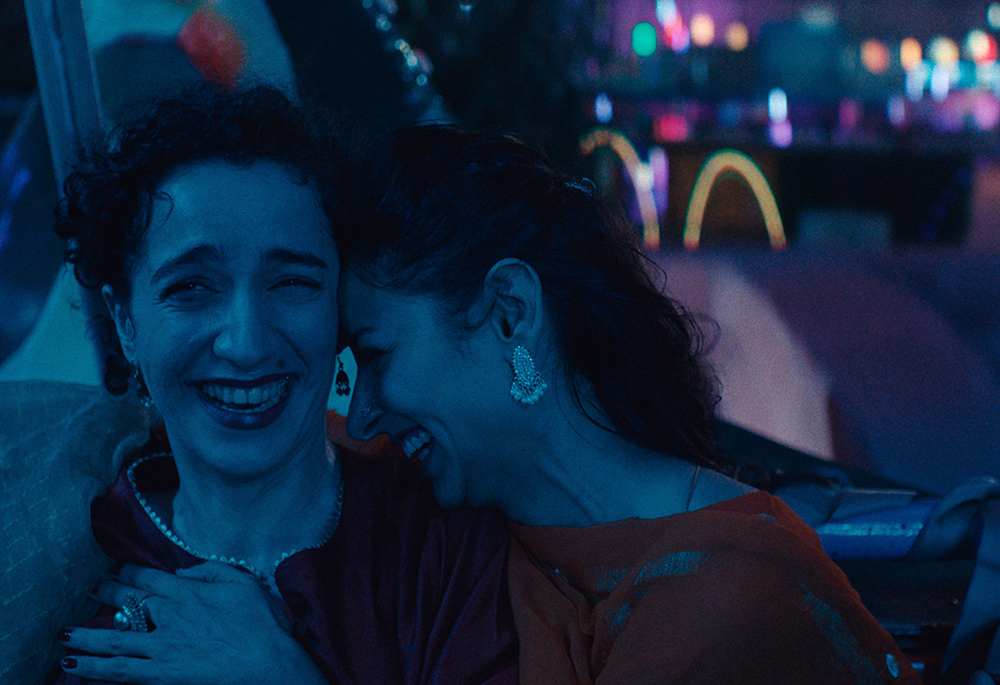KARACHI:
Known for her measured choices and commanding screen presence, Sarwat Gilani has consistently stood out for the quality of projects she chooses to associate with. Whether it’s television dramas like Mata-e-Jaan Hai Tu and Dil-e-Muztar, or more recent and groundbreaking ventures like Churails and Joyland, Gilani’s body of work reflects both intention and insight. She brings not only talent but also a discerning understanding of how stories shape the cultural fabric around us.
Recently Gilani appeared on the Talha Ahad Podcast in an episode titled, “What’s Really Wrong With Pakistan’s Entertainment Industry?” where she addressed chronic industry issues.
With a degree in graphic design from the Indus Valley School of Art and Architecture, Gilani’s creative journey extends beyond acting. Reflecting on her early career, she shared, “I graduated from Indus Valley School of Art and Architecture and I worked as a designer for six months after graduation. I was pretty miserable there because I wasn’t allowed to think outside the box, I had to only stick to what they wanted us to make.”
Gilani later left the field and tried her hand in acting in a television commercial. “I felt free during it. It was a nice experience and I just held onto it after that.”
Choosing her projects
Gilani’s screen presence since her first TV drama has spanned about seventeen years, although she has been out of business for the past seven years. Reflecting on this, she said, “I feel for the girls when I read a story. I always want to pick narratives that feature female empowerment, break gender stereotypes and show you how to fight for what’s rightfully yours.” She added, “The kind of dramas that were being created in Pakistan while I worked were very regressive. I was sick of looking at the damsel in distress on screen.”
The actor chose to dodge plenty of opportunities in search of quality of scripts, “I always need to strongly connect with the script and tell newer and more uplifting stories. Because of this I started rejecting roles that came my way and eventually people stopped offering.”
Upon her departure from acting, Gilani clarified that she was content with the direction her life took, “I was okay with not getting offers anymore. I moved on from acting and got involved in activism and philanthropy instead. I became part of a non-profit that ran olympics for special children every year and it was very fulfilling. I have always wanted to stay grounded this way and acting was only a business at that point.”
Gilani recalled what it was like to choose scripts that she enjoyed, “With luck if I even received a script like Churails, it would get heavily censored and the team would need to hide face. It was either this fight for our safety and free will or playing someone I didn’t relate to. Eventually I left acting altogether. They could find ten other lead actresses that could play the repressed house wife. I didn’t feel like I was needed anymore.”
Standing up for her work
Churails released as a webseries in 2020 under the Indian platform Zee. Knowing the Pakistani censor board will never air it, she recalled, “We already knew it would get us in trouble and we didn’t care. The story of female vigilantes drinking alcohol and holding guns in Karachi had never been told before. Of course I wanted to be a part of it.”
This wasn’t the only time Gilani had partaken in a risky project, “When Joyland was released in 2022, we were again well aware that it might create problems. It’s like, Churails prepared us for what it feels like to get banned in Pakistan.” she joked.
“Joyland told the story of gender fluidity, desire and acceptance. It was new and well made. Due to this, it was screened at the Cannes Film Festival. Not only was it screened, it also won awards. That’s a huge deal!”
Commenting on industry support over her exploratory projects, Gilani shared, “There is a lot of politics in our industry for sure. You follow a trend and become part of a clique to get jobs. Due to this, projects like Joyland and Churails didn’t receive a single praise from within the industry. Which is quite sad because it was so critically acclaimed worldwide.”
According to her, “I’ve learned that no one in industry really stands with you while you are going through something difficult. They don’t want to ruin their own image. Joyland and Churails getting banned in Pakistan was tough for me and it made me realize that I cannot rely on anyone.”
She didn’t shy away from calling out fellow actors either, “It’s kind of hypocritical. The actresses that call themselves feminists and claim to support Aurat March will not hesitate while choosing a regressive and backwards script. If you are truly a feminist, you wouldn’t be okay with playing such a demeaning role. Their activism is very performative.”
Her liberal arts background has rendered her to understand systemic issues in the entertainment industry, “Even while working in advertising, it had the same problem. If you want to sell soap, put a woman there, if you want to sell milk, make a woman stand next to it. It’s exhausting and we have more to offer.”
Have something to add to the story? Share it in the comments below.


